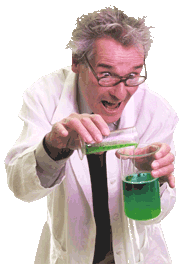At AllTheScience, we're committed to delivering accurate, trustworthy information. Our expert-authored content is rigorously fact-checked and sourced from credible authorities. Discover how we uphold the highest standards in providing you with reliable knowledge.
What is Grey Goo?
The term “grey goo” is used to describe a theoretical event in which nanotechnology would run wild, consuming the natural environment and covering the Earth in a lifeless grey goo. The concept was first introduced in the 1980s book The Engines of Creation, and it was eagerly adopted by many science fiction creators. The actual probability of such an event occurring in the real world is extremely small, and many people including the originator of the grey goo theory have actually soundly debunked the possibility altogether.
The idea behind grey goo is that self assembling nanoparticles could theoretically start to exceed the purposes for which they were designed, constructing a wide variety of things from the natural environment around them. These replicators would eventually start to break down the environment as they searched for building materials, and if they could move, they could slowly eat the environment, spreading ever more rapidly as they built more of themselves. According to the theory, the resulting creations might not necessarily be functional, but they would effectively ruin the environment, and they could potentially spread into space.

In fact, such assembly and replicator particles are not necessarily needed for nanotechnology, and the technology can be designed very precisely to prevent just such a scenario. Increased awareness and concerns about the natural environment have led many leading researchers in the field to design fail safes which are designed to prevent a grey goo scenario. Researchers have pointed out that nanotechnology capable of creating such a scenario hasn't even been invented yet and it may never be invented.
Although grey goo is unlikely to happen, some legitimate concerns about the widespread use of nanotechnology have been raised. Researchers have shown that some nanoparticles appear to have an adverse reaction on the natural environment. Fish, for example, can develop problems in response to the particles used in cosmetics which end up in the water supply. This research suggests that nanotechnology needs to be carefully tested in controlled environments before it is released.
Despite debunking, articles about the grey goo theory pop up in the media every now and then, setting off a fresh round of panic about nanotechnology and its potential consequences. Creators of science fiction also enjoy playing with the concept, exploring the idea of tiny robots which could destroy the world entirely by accident as a result of the constant human quest for technological advancement.
AS FEATURED ON:
AS FEATURED ON:










Discussion Comments
Addressing to the above commenter: It's actually very possible that it will be invented in the 21st century.
If you say gray goo is 'children's stories' what's left with the ridiculous theory that the reversal of polarities will kill all of us in 2012?
The idea of grey goo may be frightening, but we live in the 21st century. The idea of killer robots the size of atoms need not concern us. These are merely childrens' stories, perhaps a bad teenage sci-fi film.
Post your comments